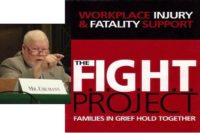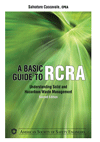Have a son or daughter headed off to college?
Make sure their dorm or apartment is fire safe

 With the fall school semester around the corner, the National Fire Protection Association (NFPA) reminds students to be mindful of fire safety. September and October are peak months for fires in college housing, according to NFPA research, and the Center for Campus Safety has marked September as Campus Fire Safety Month.
With the fall school semester around the corner, the National Fire Protection Association (NFPA) reminds students to be mindful of fire safety. September and October are peak months for fires in college housing, according to NFPA research, and the Center for Campus Safety has marked September as Campus Fire Safety Month.
"As college students settle into housing in dorms and off-campus apartments, it’s important they review fire safety tips to learn how to prevent fires, check smoke alarms and prepare escape plans,” said Lorraine Carli, NFPA’s vice president of Outreach and Advocacy.
Most college fires start in the kitchen
NFPA’s report, “Structure Fires in Dormitories, Fraternities, Sororities and Barracks” notes that U.S. fire departments responded to an estimated average of 3,810 structure fires in college housing between 2007 and 2011. Roughly 70 percent of fires began in the kitchen or cooking area, and cooking equipment caused about three-quarters of these fires. Seven percent of fires started in the bedroom, but were responsible for 27 percent of injuries and 21 percent of property damage. The report also states that fires are most common in the evening hours between 5 p.m. and 11 p.m., and on weekends.
"Most cooking fires happen when a hot stove is left unattended. By staying in the kitchen and being alert while preparing meals, students can reduce their risk of starting a fire," added Carli. “Being sure that smoke alarms are working, and practicing a fire escape plan are also vital to reducing injuries and loss of life.”
“Working Smoke Alarms Save Lives: Test Yours Every Month!” is the theme for Fire Prevention Week 2014, NFPA’s annual awareness campaign held this year on October 5 – 11. The Fire Prevention Week website provides information and resources that can help students learn and spread the word about fire safety.
More safety recommendations
The following are additional fire safety tips from NFPA that can help college students living in on- or off-campus housing:
- Look for fully sprinklered housing when choosing a dorm or off-campus housing.
- Make sure your dormitory or apartment has smoke alarms inside each bedroom, outside every sleeping area and on each level. For the best protection, all smoke alarms should be interconnected so that when one sounds, they all sound.
- Test all smoke alarms at least monthly, and never remove batteries or disable smoke alarms.
- Cook only where it is permitted.
- Learn your building’s evacuation plan and practice all drills as if they were the real thing. If you live off campus, have a fire escape plan with two ways out of every room.
Visit www.nfpa.org/campussafety for more information and resources, including a free downloadable fire safety checklist and campus and dorm fire safety tips sheet, specifically created for college students. Additional information about cooking fire safety and smoke alarms can be found on NFPA’s website.
Looking for a reprint of this article?
From high-res PDFs to custom plaques, order your copy today!







